Looking for a job is hardly fun, but most of us needwork, so we’ll put up with the uncertainty, interviews, test-tasks and really whatever else the recruiters think is necessary. So it can be disheartening to learn that some of the vacancies you may have applied for aren’t exactly real.A mansharedthe details of corporate HR recruiting that an acquaintance told him in confidence. From fake jobs to “test the waters,” to lowering offers over and over again, the practices were concerning.We reached out to the man via private message and will update the article when he gets back to us.RELATED:Some HR departments will go out of their way to find the cheapest employeesImage credits:Pixabay / pexels (not the actual photo)But one man shared some insider knowledge on how companies research just how low they can goImage credits:Nicola Barts / pexels (not the actual photo)Image credits:FlyingSaucer51Recruiters might fake job listings to get a better picture of the marketImage credits:Anna Shvets / pexels (not the actual photo)While it might not be as new as it seems, the idea of a “ghost job” has risen to prominence recently, as HR teams want as much data about the job pool as possible. Experts suggest that most companies prefer internal hires or referrals to “traditional” job applicants, as it’s quicker, cheaper and often morereliable. Remember, to HR, you are aresourceand often nothing more.Some suggest it’s not all about “cheaper” workers, as job listings are public and can serve a variety ofpurposes. It can create the illusion that the company is looking for any and all applicants, even when they have a specific candidate in mind. It might be a way to placate overworked employees with the hope that there will be new workers picking up the slack.It can even be a way to develop a picture of what competitors are paying theiremployees. If a listing for a common job in the area gets substantially more applicants then, that is an indicator that the offer is above average for the area. Unfortunately, this means that many people will have to go through even more steps when looking for a job, as half of the places they’ve applied to are not even real.Ultimately, companies are well aware that people need work. This is why, for example, many will list benefits that they have no intention of actually giving. Recruiters willfalselytag positions as fully remote, for example, to attract more applicants, but will ultimately tell the few who qualify that in reality, the job is not at all remote. Often thefirst dayon the job is where one can see if the company is actually up to snuff or lied about everything.There are a few ways to spot a “ghost job”Image credits:nappy / pexels (not the actual photo)In general, “ghost jobs” are so prevalent that some believe it’s inflatingemployment datain the US. After all, a quick and cursory glance at any job listing page would make it look like everyone is hiring for all sorts of positions, while in reality, many of these jobs are not real. It also can create a sense of low self-esteem in applicants who keep getting zero responses and thinking it’s their fault.There are a few indicators that could suggest a job is a ghost listing. One is a lack of information about salary and benefits. This applies more to the US, as theEUpassed legislation in 2022 that makes it mandatory for employers to list salary ranges publicly. The goal of employers who hide it is to generally see how low each applicant is willing to go and to just hire the cheapest one.As some have already noted, it’s unfortunately not unusual to see job listings that seem like they are perpetually up or perhaps get repostedregularly. This is a telltale sign of a “ghost job” as the company is not taking any clear steps to fill it. After all, what company is perfectly happy to have multiple key roles remain unfilled?Often these jobs will list unrealistic experience expectations or unclear responsibilities just to deter some applicants from. They might, of course, bevagueto hide just how hard the job really is. If they get a person who happens to have a decade of experience and is still willing to apply, that’s a win-win for the company. Ultimately, anyone applying for a job out there needs to be very mindful of the application, not just the purported salary or fancy title.Readers discussed the post with the person who made it and people shared their reactionsThanks! Check out the results:
Looking for a job is hardly fun, but most of us needwork, so we’ll put up with the uncertainty, interviews, test-tasks and really whatever else the recruiters think is necessary. So it can be disheartening to learn that some of the vacancies you may have applied for aren’t exactly real.
A mansharedthe details of corporate HR recruiting that an acquaintance told him in confidence. From fake jobs to “test the waters,” to lowering offers over and over again, the practices were concerning.We reached out to the man via private message and will update the article when he gets back to us.
RELATED:
Some HR departments will go out of their way to find the cheapest employees

Image credits:Pixabay / pexels (not the actual photo)
But one man shared some insider knowledge on how companies research just how low they can go

Image credits:Nicola Barts / pexels (not the actual photo)
Image credits:FlyingSaucer51
Recruiters might fake job listings to get a better picture of the market

Image credits:Anna Shvets / pexels (not the actual photo)
While it might not be as new as it seems, the idea of a “ghost job” has risen to prominence recently, as HR teams want as much data about the job pool as possible. Experts suggest that most companies prefer internal hires or referrals to “traditional” job applicants, as it’s quicker, cheaper and often morereliable. Remember, to HR, you are aresourceand often nothing more.
Some suggest it’s not all about “cheaper” workers, as job listings are public and can serve a variety ofpurposes. It can create the illusion that the company is looking for any and all applicants, even when they have a specific candidate in mind. It might be a way to placate overworked employees with the hope that there will be new workers picking up the slack.
It can even be a way to develop a picture of what competitors are paying theiremployees. If a listing for a common job in the area gets substantially more applicants then, that is an indicator that the offer is above average for the area. Unfortunately, this means that many people will have to go through even more steps when looking for a job, as half of the places they’ve applied to are not even real.
Ultimately, companies are well aware that people need work. This is why, for example, many will list benefits that they have no intention of actually giving. Recruiters willfalselytag positions as fully remote, for example, to attract more applicants, but will ultimately tell the few who qualify that in reality, the job is not at all remote. Often thefirst dayon the job is where one can see if the company is actually up to snuff or lied about everything.
There are a few ways to spot a “ghost job”

Image credits:nappy / pexels (not the actual photo)
In general, “ghost jobs” are so prevalent that some believe it’s inflatingemployment datain the US. After all, a quick and cursory glance at any job listing page would make it look like everyone is hiring for all sorts of positions, while in reality, many of these jobs are not real. It also can create a sense of low self-esteem in applicants who keep getting zero responses and thinking it’s their fault.
There are a few indicators that could suggest a job is a ghost listing. One is a lack of information about salary and benefits. This applies more to the US, as theEUpassed legislation in 2022 that makes it mandatory for employers to list salary ranges publicly. The goal of employers who hide it is to generally see how low each applicant is willing to go and to just hire the cheapest one.
As some have already noted, it’s unfortunately not unusual to see job listings that seem like they are perpetually up or perhaps get repostedregularly. This is a telltale sign of a “ghost job” as the company is not taking any clear steps to fill it. After all, what company is perfectly happy to have multiple key roles remain unfilled?
Often these jobs will list unrealistic experience expectations or unclear responsibilities just to deter some applicants from. They might, of course, bevagueto hide just how hard the job really is. If they get a person who happens to have a decade of experience and is still willing to apply, that’s a win-win for the company. Ultimately, anyone applying for a job out there needs to be very mindful of the application, not just the purported salary or fancy title.
Readers discussed the post with the person who made it and people shared their reactions


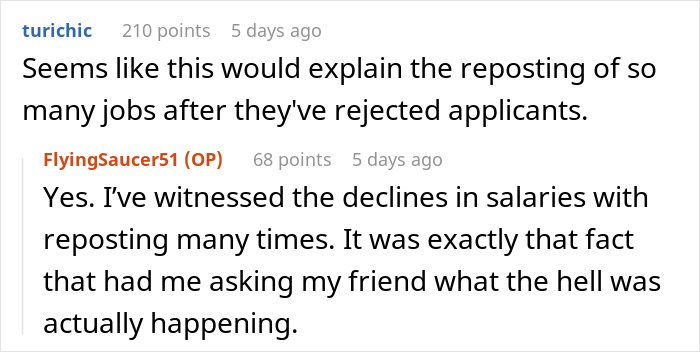
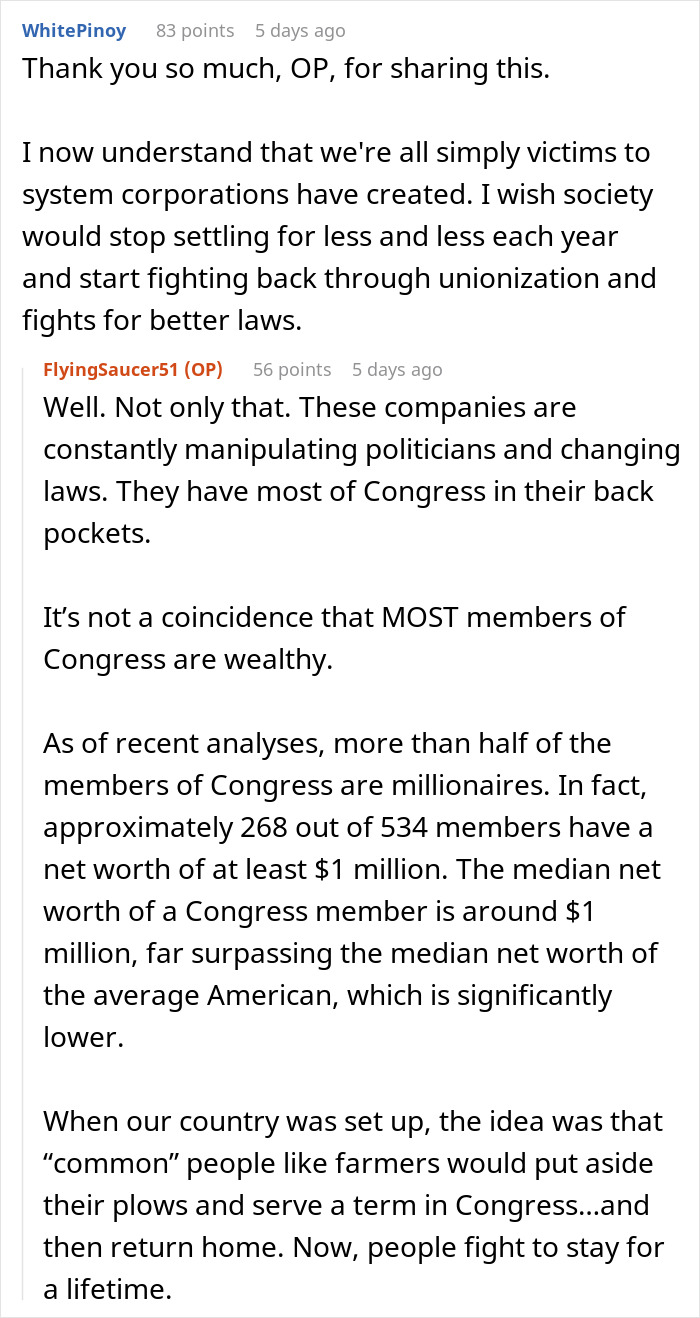
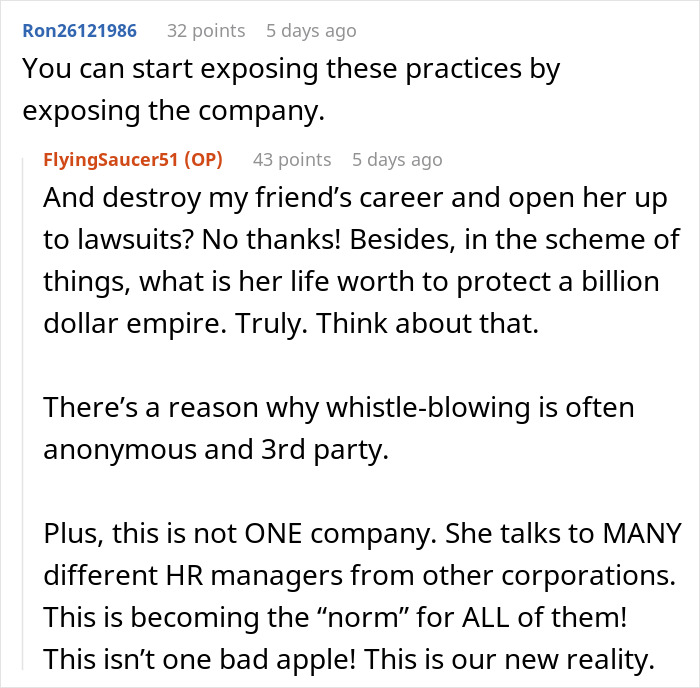
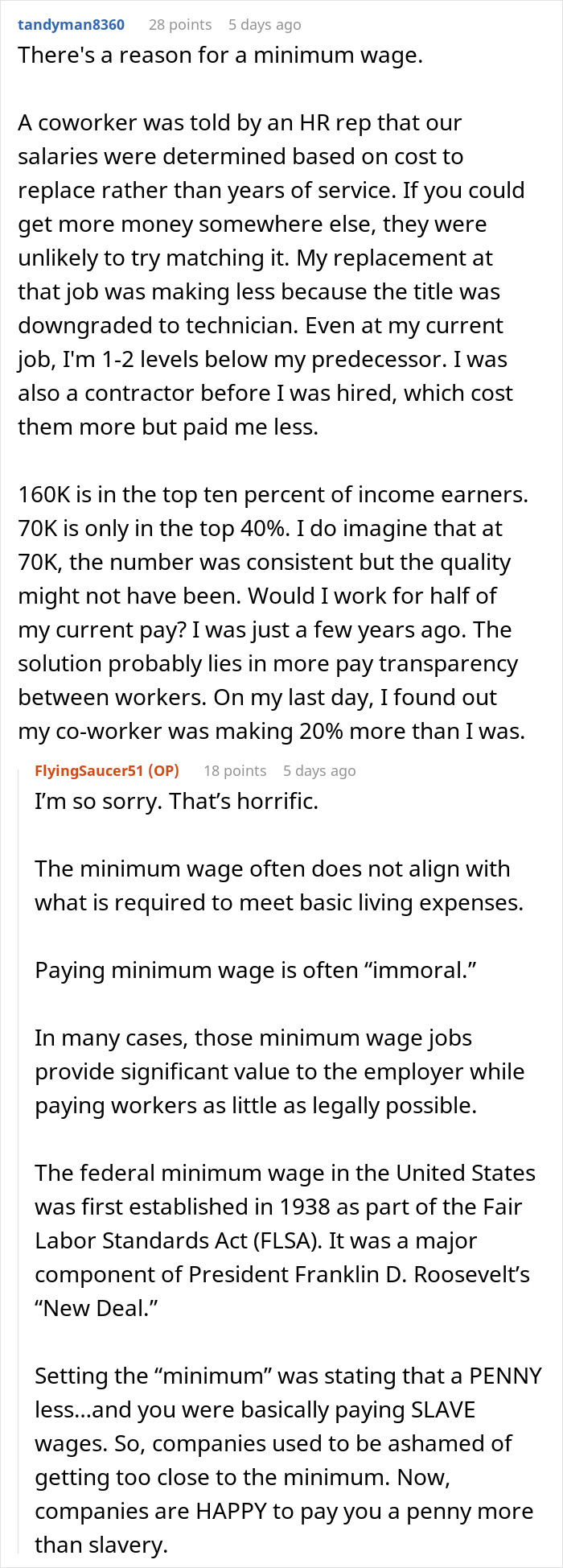


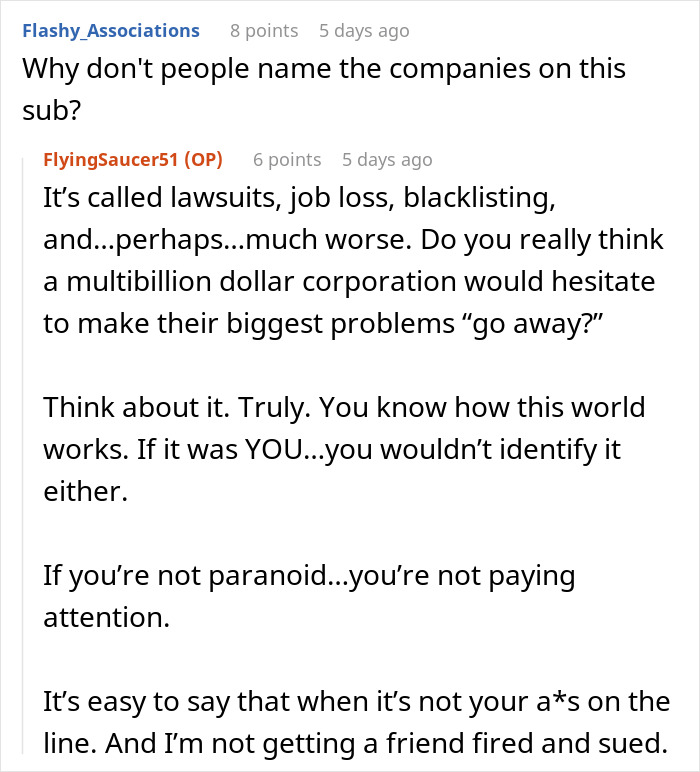
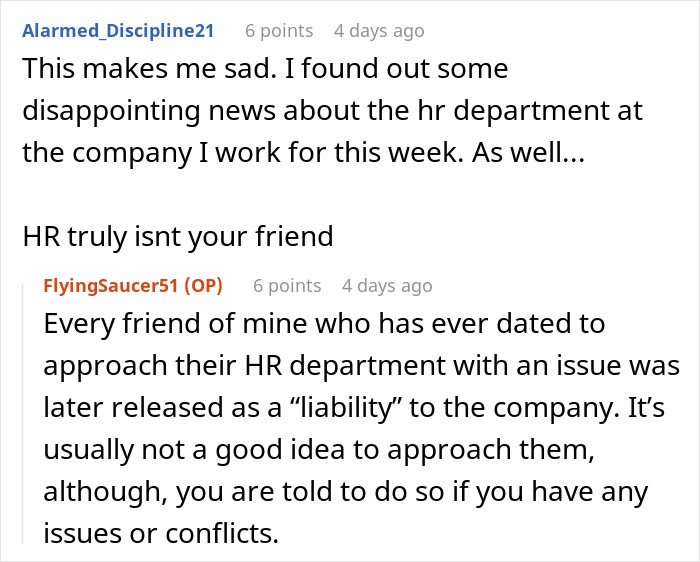
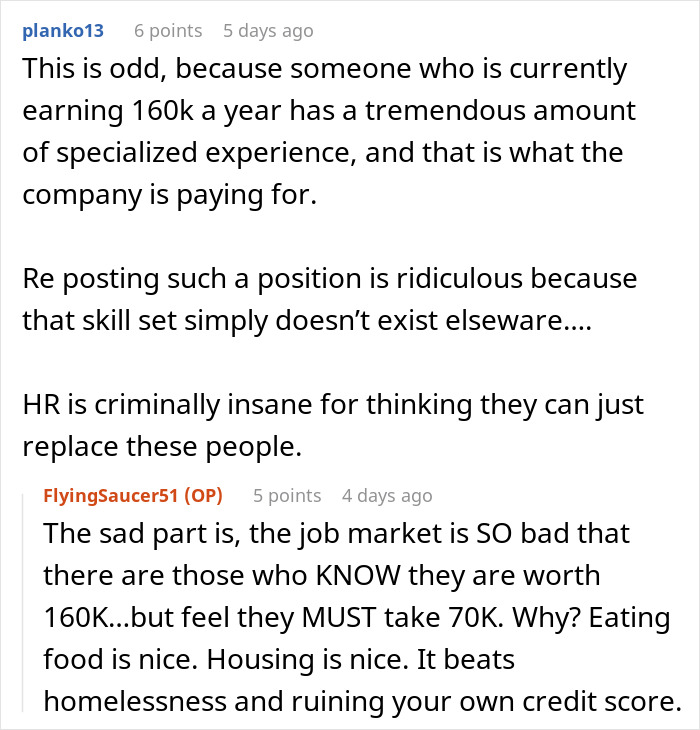

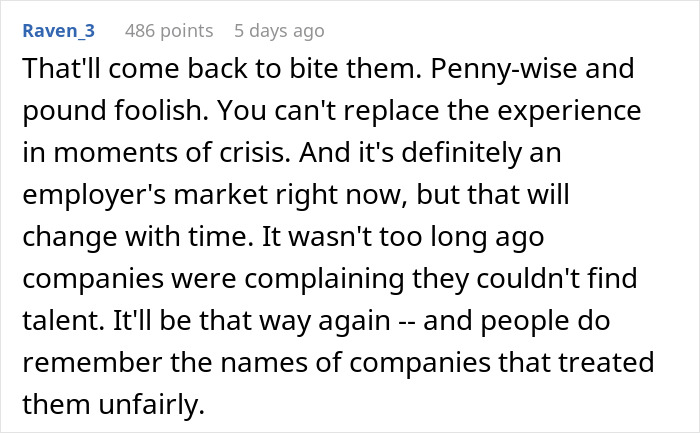






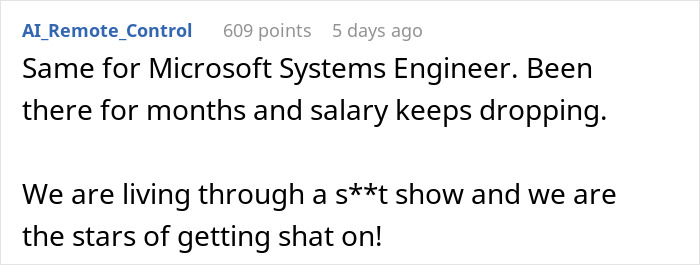
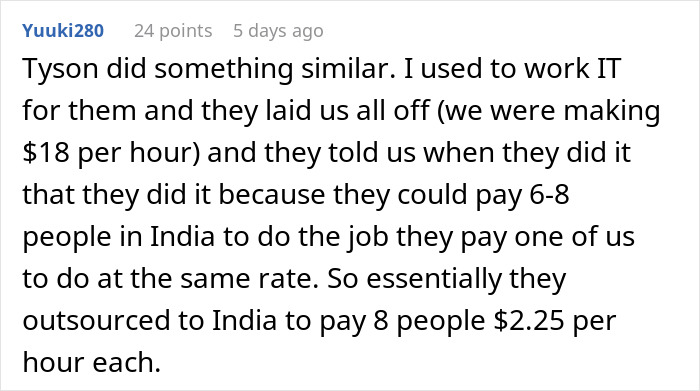

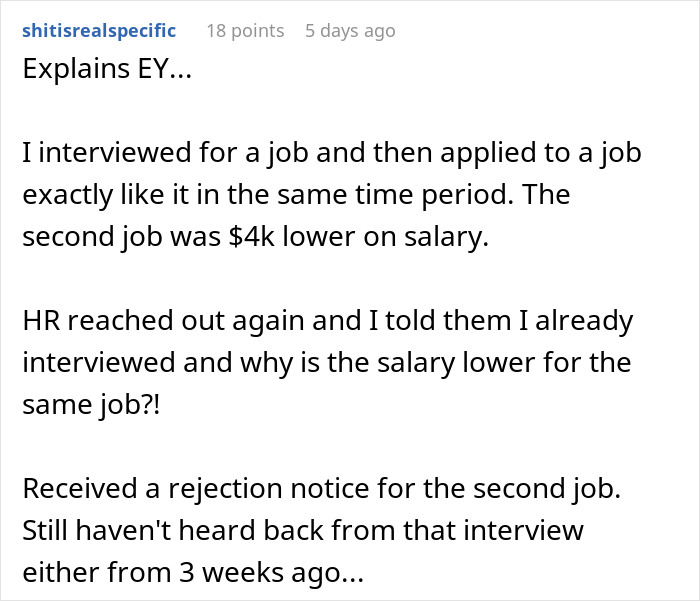
Thanks! Check out the results:Gabija Saveiskyte
Monika Pašukonytė
Indrė Lukošiūtė
Work & Money